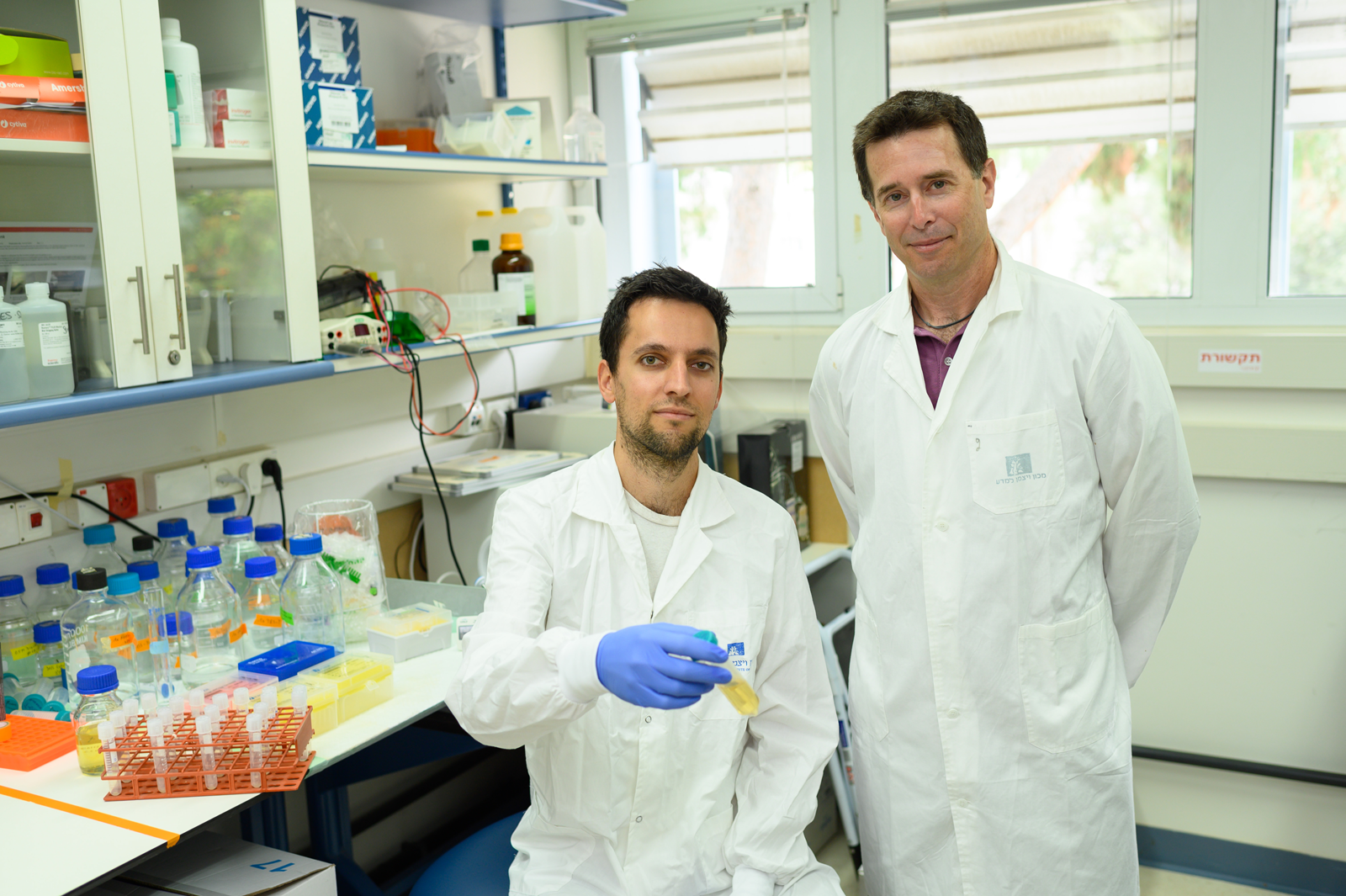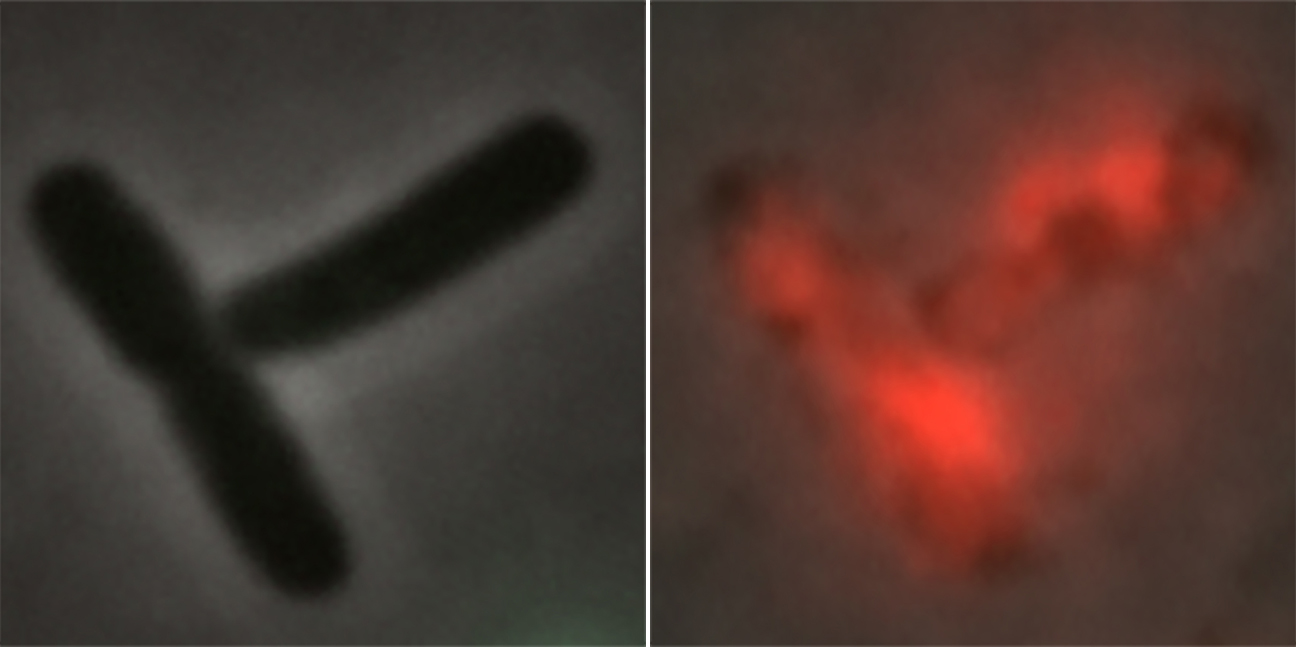
REHOVOT, ISRAEL—August 17, 2023—Every time we make a call, send a text message, or watch a video, some of the energy stored in the cell phone battery is depleted. Living cells also store energy in “currencies” they can cash in when needed to fuel life processes. The main energy currency used by all life on Earth is a molecule known as ATP. But even though charging cells with ATP molecules is of vital importance, discharging them could be equally crucial – and potentially lifesaving.
In a study published today in Cell, researchers from the Weizmann Institute of Science have described a new family of proteins that deplete cells of their energy, which protects the cells from invaders. The scientists showed that this previously unknown immune mechanism not only exists in single-celled organisms, it is used by many living creatures, from corals to bees, and has been preserved through more than a billion years of evolution.
The newly revealed strategy is the latest of more than 100 recently discovered sophisticated mechanisms used by bacteria in their heroic battle against phages, the viruses that attack them. Many of these mechanisms were discovered and described in the laboratory of Prof. Rotem Sorek of Weizmann’s Molecular Genetics Department. Just like the viruses that attack us, phages are also made up of a small quantity of proteins and a lot of genetic material – DNA or RNA – which they inject into the bacteria they are taking over. Having accomplished this task, these viruses use the bacteria’s cellular machinery to replicate themselves over and over. Once they have depleted a single bacterium’s resources, they tear down its membrane, break out, and spread throughout the entire bacterial colony.
In their study, the researchers focused on a gene that had mysteriously nullified a phage’s ability to replicate itself and infect the rest of the colony. The scientists ascertained that the mystery gene encodes a protein that cuts up and permanently destroys ATP molecules, thereby denying the invasive phage the energy it needs to reproduce itself, resulting in an effective immune strategy. The researchers deduced that the gene plays a key role in bacterial immune systems: In its absence, phages that infected the bacteria replicated 100 times faster.
“Lowering the levels of ATP in the cell is a strategy that’s brilliant in its simplicity,” says Dr. François Rousset, who led the research team in Sorek’s lab. “The phage cannot replicate without energy, and it is better for the bacterium, which in any case is infected and about to die, to deplete its own battery, preventing the phage from replicating and spreading to the rest of the colony.” The researchers also discovered that in some cases, depleting ATP affects the phage’s control systems, causing it to breach the bacterial cell’s membrane before it has had a chance to replicate. This prevents much more widespread damage to the colony.

Surprisingly, this strategy is much more common than one would imagine. When scientists scanned genome databases of tens of thousands of bacteria, they discovered more than 1,000 immune genes that work in a similar way. They also were surprised to find ATP-depleting capabilities in a family of proteins that, until now, was not even known to belong to the immune system. This suggests that the researchers have discovered a new immune strategy that exists in hundreds of different bacteria and grants them effective protection against viruses.
The study also extended beyond bacteria. The scientists carried out a comprehensive analysis showing that far more advanced organisms – fungi; insects such as bees, corals, sponges; and many other organisms – also produce immune ATP-cutting proteins. Although this type of immune protein does not exist in humans, the researchers believe it is the ancient predecessor of the proteins that make up our innate immune systems.

“Many studies in the past few years have used the knowledge of advanced organisms’ immune systems to reveal immune strategies used by bacteria. Our new study shows that the extensive knowledge accumulated about bacterial immune systems enables us to follow the opposite logic – we can learn about the immune systems of advanced organisms by studying those of bacteria," says Sorek.
“ATP molecules are among the most widely occurring in nature, so clarifying their role in immunity can greatly contribute to understanding the defense strategies that countless organisms use when attacked by viruses.” - Professor Rotem Sorek, Weizmann’s Molecular Genetics Department
Also participating in the study were Erez Yirmiya, Shahar Nesher, Dr. Adi Millman and Sarah Melamed from Weizmann’s Molecular Genetics Department; and Dr. Alexander Brandis, Tevie Mehlman, Dr. Sergey Malitsky and Dr. Maxim Itkin from Weizmann’s Life Sciences Core Facilities Department.
Prof. Rotem Sorek’s research is supported by the Knell Family Center for Microbiology; the Dr. Barry Sherman Institute for Medicinal Chemistry; the Sagol Weizmann-MIT Bridge Program; and the Andre Deloro Prize for Scientific Research.
